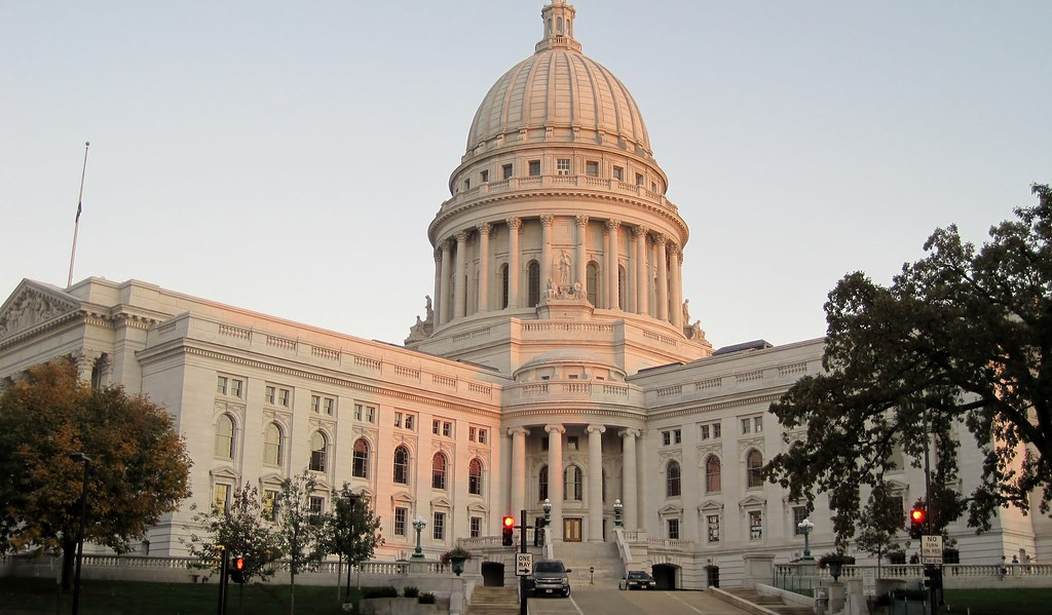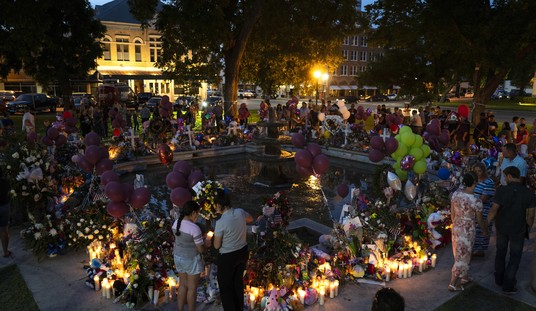We've been paying a lot of attention to what Donald Trump's historic win on Tuesday means for the Second Amendment at the federal level, but over the past few years much of the debate over our right to keep and bear arms has taken place in state legislatures. So how did gun owners fare at the state level this week? Pretty good, with one notable exception.
Let's get the bad news out of the way first. In North Carolina, Democrats managed to break the GOP's veto-proof majority in the state House. Both the state Senate and House are still firmly in Republican hands, but with Democrat Josh Stein elected as governor, it's going to be extraordinarily difficult to move forward on pro-gun legislation, including Constitutional Carry.
Republicans could have moved forward with a Constitutional Carry bill this year, but Senate President Phil Berger never got behind the legislation. The Carolina Journal suggests that anger over the GOP's skittishness on permitless carry may actually have cost them the supermajority in the House.
In reaction to the results, online commenters pointed to the diluting effect of Libertarian and Constitution Party candidates had for state Republicans, while former and future President Donald Trump still crossed the finish line to secure a national victory for the GOP. Some pointed to policy as an explanation, with Libertarian voters expressing frustrations over the lack of Republican action on constitutional carry at the state level despite, adequate supermajorities.
The data makes it crystal clear. @realDonaldTrump offered @LPNational a seat at the table, and the @NCGOP ignored what @LPNC was pushing for. It seems NC Libertarians rewarded Trump and punished the NCGOP. Pass Constitutional Carry NOW!
— Mike Ross for NC Governor (@FireTheUniparty) November 6, 2024
It's still possible that Constitutional Carry could pass next year, but Republicans are going to have to find at least one Democrat willing to buck the governor.
There's better news in Michigan and Minnesota, where Republicans were able to undo Democrat majorities in at least one chamber of the legislatures. In Michigan, the GOP recaptured the state House, which likely put an end to Gov. Gretchen Whitmer's gun control agenda. And in Minnesota, Gov. Tim Walz not only has to deal with the sting of not being able to pick out the drapes in the vice president's residence, but a deadlocked House (and potentially a Republican majority).
If the current numbers hold the House will be tied — if one or both seats flip Republican, the GOP will have outright control.
Either way, for the first time since 2023, Republicans will be able to block DFL proposals.
"The wheels of the DFL progressive bus just came to a screeching halt. The DFL is not going to be able to move big budgets and big programmatic ideas, as they did in 2023," said political expert Larry Jacobs.
Republican and DFL House leaders held dueling news conferences — both signaling something new will come of this — they say they will work together in a power-sharing agreement.
"This is our opportunity to work together with Democrats across the aisle and find ways to best serve Minnesotans," said Rep. Lisa Demuth.
The GOP and DFL might be able to come to a working agreement on things like a state budget, but Walz won't be able to enact a ban on semi-automatic firearms and large-capacity magazines, waiting periods, or other items on the gun control lobby's wish list.
Republicans were also able to keep their Senate majority in Pennsylvania, and both legislative chambers in Wisconsin, denying Democrats the opportunity to advance gun control. Democrats believed they had a good shot at flipping one or both chambers in New Hampshire', but both the House and Senate remain in control of the GOP, and Republican gubernatorial candidate Kelly Ayotte won election as well.
They're still counting the votes in Arizona, where Republicans had razor-thin majorities in the House (31 seats out of 60) and the Senate (16 of 30 seats) heading into this year's elections. While there are still several races yet to be called, it looks like the GOP will maintain control of at least one chamber.
In the Senate, the GOP was leading in 16 of the 30 races as of Thursday morning. Twenty-five of the contests had results that were unlikely to change, with Republicans ahead in 14 and Democrats in control of 11.
In addition, GOP candidates were leading in two of the five Senate races where the margin was under 3 percentage points: District 2 and 4. Democrats, meanwhile, were clinging to narrow leads in Districts 9, 17 and 23.
Democrats would have to win all five of those tight races to take control of the Senate and four to create a 15-15 tie. Republicans will maintain their hold on the chamber in any other scenario.
The picture is much more complicated over in the House, where up to two candidates from each party are battling over two seats per district.
Republicans entered Thursday with the advantage in 32 of the 60 races. However, several contests were particularly unsettled, with razor-close margins.
For Districts 4, 9 and 13, the distance between first and fourth place was under 3 points in each race. Those six seats were split 3-3 as of Thursday morning, but a shift of a few hundred votes here and there could change that balance.
In addition, the top two spots in District 2 were split, but the third-place Republican was only 1.1 points behind the first-place Democrat.
The loss of the supermajority in North Carolina really stings, and I hope that gun owners and groups like Grassroots NC are able to persuade at least one House Democrat to support a Constitutional Carry bill next session.
There'll still be plenty of attacks on our 2A rights in the usual states like California, New York, Massachusetts, Maryland, and Illinois, but the gun control lobby wasn't able to expand its reach this election cycle despite outspending pro-gun groups by a wide margin. And blocking Tim Walz's anti-gun agenda in Minnesota, Gretchen Whitmer's push for more gun control in Michigan, and keeping Democrats from a trifecta in Arizona are all significant wins for fans of the Second Amendment.








